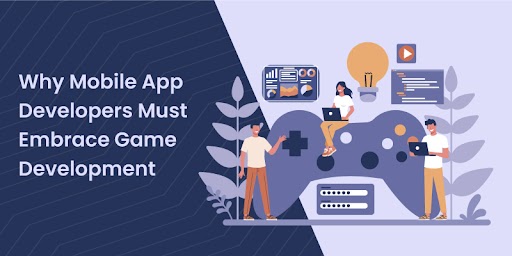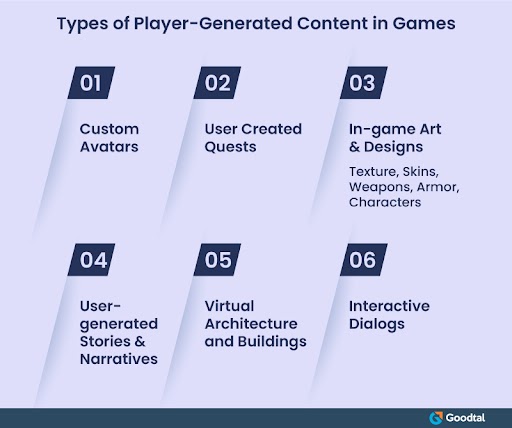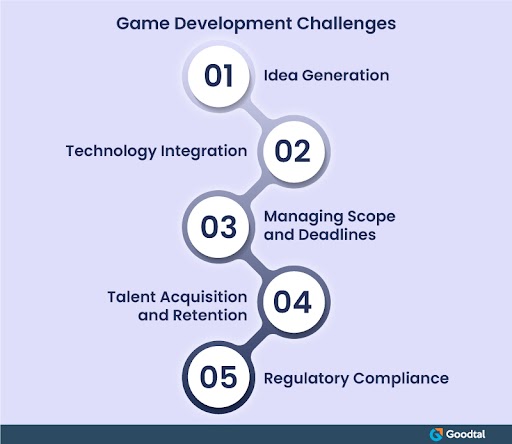
Game development has always been a very specific and specialized area of mobile app development, and only a few mobile app developers are also expert game developers. A lot has been said and read about game development. But it is not enough, as this is a fast-updating domain with rapidly changing trends.
Players want new ideas and experiences in games every day. This makes it challenging for even the best game development companies, who must keep updated about the changing trends to stay ahead of the competition.
So, let’s just directly start with the latest trends and technology in game development that have led to its sharp rise as the most happening domain in mobile app development.
What’s New in Game Development?
Emerging trends in game development change very fast on a micro level. However, when we look at the trends and technologies, we can still summarize what’s happening in game development and will continue to impact in the coming year.
AR and VR
Augmented reality and virtual reality aid in offering real-like virtual experiences to users. As the game industry is focused on real-like and engaging, high-quality user experiences, it can’t ignore AR and VR.
Immersive experiences help the player feel his presence in a virtual environment, giving him a feeling of competition and accomplishment when he, not his virtual identity, is playing the game himself. Moreover, AR and VR also make the game interactive and challenging, adding to the user’s excitement. AR and VR developers are now an integral part of game development teams to offer high-quality user experience in games.
Mobile app development is now supported by high-grade frameworks that make it easy for developers to integrate even the most recent and complex technologies into game development. Flutter, an open-source mobile app development framework, offers multiple packages that facilitate AR development, and Flutter developers can deliver high-quality user experience in gaming.
However, it must be noted that AR & VR integration affects the time and costs of game development. Game development agencies must thus evaluate the costs accordingly.
AI in Gaming
Artificial intelligence contributes to many software and mobile app development areas as it offers accurate and speedy interpretations of real-time data and pattern analysis.
The gaming sector is also exploring AI in unique ways, as it can be used to design games by creating sets of all possible moves and predicting the superset of outcomes. It can also offer dynamic adjustments in difficulty levels based on how the player performs at each step.
AI also aids in developing realistic, non-performing characters. This makes the game experience advanced and comprehensive, with challenging activities that users can engage with.
AI helps in the enhanced design of exceptionally captivating user experiences. It also facilitates personalization in gaming, which is an essential ingredient of success for any app.
Suggested Reading: How AI in Game Development Will Transform the Gaming Experience
User-generated Content
UGC is player-generated content in the context of the gaming industry. To encourage engagement and interaction, the gaming industry is relying on PGC. However, even the best practices can fail unless optimized. UGC shouldn’t ever be overdone.
We need to evaluate how to increase the quality and quantity of PGC, leverage it better, and increase RoI. But first, we must understand what type of UGC works best in the gaming sector.

Retro Games
Retro themes have been an integral part of the entertainment industry. People still enjoy classic, period-piece movies as they differ from reality.
Similarly, game players love games that look different from their reality. The gaming industry is thus experimenting with retro or classic themes in game development. These games are high on design and creativity. They also offer a lot of scope for exploration.
Cutting-edge Technology in Educational Games
As such, educational games have existed for a long time. However, most students liked to keep education and entertainment separate. So, games were a less significant part until a few years before the pandemic pushed education to majorly online.
As online education became a norm during the pandemic, and it had its limitations of low personal interaction, educators were forced to adopt new means for keeping the students engaged. Educational games since then have become a significant part of education.
Educational games offer better engagement and a real-like simulative environment for subjects that require applicative and practical learning. With AR, VR, and AI, the user experience in education has become more accurate, analytical, and valuable.
The education industry is experimenting with cutting-edge technology and trying to bring something new daily. Why would game developers miss this emerging trend?
Game developers worldwide are experimenting with innovative ideas and trying to offer better user experiences than ever before to attract more and more users from the educational industry.
While it started with kids, now educational game apps are a part of every level of education, from basic to advanced. This industry is set to benefit the most from game apps as the education sector is now moving online, and people of all ages can access education, irrespective of location and language.
Challenges in Game Development
As already discussed, game development, though a high-demand domain and lucrative for developers to cash on, has a set of challenges that developers must work hard to overcome.
Different OS
Game development companies are targeting more and more users for better reach. So, it becomes inevitable to develop for both Android and iOS. For best results, iOS developers and Android app developers work on their specific set of tools and technologies. It is not easy for developers to master both domains.
Idea Generation
Gaming is a fast-moving sector as the entertainment industry suffers from players’ losing interest very soon. So, they must be offered new features and functionalities that keep them glued to the app. A great idea is invariably the first step in app success! It applies to gaming, especially when the competition in gaming is already very high, and the industry relies on innovative ideas.
Unlike a financial or even educational app with a longer life, when you have developed a game app, the users will get bored despite its success. They will switch to another without much thought as they want to explore more engaging entertainment options.
Remember, a game is not a utility service satisfying users’ basic needs. Unless a utility service app performs poorly or doesn’t work as intended, users cannot switch to another alternative.
However, in games, users are satisfying their need for entertainment that is never fulfilled completely. So, game app development is challenging as you can’t be complacent with what you have made despite making the best product in the industry.
To be successful, businesses offering gaming apps must keep generating innovative ideas continuously, regularly, and speedily, as the competitors are doing the same, and the one better at it will beat the competition.
Technology Integration
Game app developers have an obligation to try new technologies and integrate them with existing applications. There is also peer pressure, as most game development companies try to bring something new daily. No matter the results are risky on costs and ROI, businesses must try new ideas so that their games do not become monotonous or outdated for users.
Managing Scope and Deadlines
Managing the scope of the game development app is not easy. On one hand, one has to define an area and optimize it based on budget, resources, and time constraints. On the other, game development requires exploration and adding new and unusual features that would attract and retain the users.
And, since the game is not a utility service but an entertainment app, there must be loads of features. Some of these features might be perceived as optional by the developers who want to release the app with the more essential features, but they must include these to offer variety and a continuously engaging experience to the players.
Game development requires a significant focus on user experience and user interface design. It often involves heavy use of technology and high-end graphics or animation. So, it needs too much effort and work from developers and designers. Furthermore, as we already discussed, game apps have loads of features to attract the varied needs of different users, so fixing deadlines and adhering to timelines is cumbersome.
Talent Acquisition and Retention
Game development is not just like any other app development, as it requires higher skills for building features such as AR, VR, graphics, animation, real-time performance, etc.
Advanced technologies such as AR and VR are increasingly used on game apps to make the games more engaging. Moreover, game apps must keep offering new and advanced features more frequently than regular apps.
All the special requirements make game app development a very specialized domain. This implies that the game developers must be updated and proficient with many tools and technologies. Knowledge of specific tools, frameworks, or languages is necessary for specific project requirements. For example, for React Native game app development, you will specifically require expert React Native developers. It thus becomes a challenge to hire or acquire talented game developers who match your needs.
The demand for game apps is also increasing more than ever. Thus, game developers are in heavy demand, and those with better experience and expertise are not enough to meet this demand. So, despite the game development service providers being open to offering better perks for hiring the best developers, talent acquisition and retention become a challenge.
Regulatory Compliance
The gaming industry suffers tough challenges, mainly due to regulatory and compliance requirements across countries. Most games offer rewards to motivate players. These rewards can be monetary or non-monetary.
If they are monetary, the app must comply with the taxation and financial requirements of all the countries the players are operating from.

Suggested Reading: Is Game Development All That Fun?
Wrapping Up!
Game development demand is at an all-time high. It is one of the most lucrative domains for mobile app developers, yet very challenging and risky. Game app development companies can’t relax! They must keep learning more and updating their skills on various tools and technologies. And some of them are capable of that, hence successful.
The top game developers are keeping themselves ahead of the competition by leveraging emerging trends, technologies, and advanced tools to build highly engaging and powerful game apps. If you are looking for such app developers, Goodtal is here to help!
